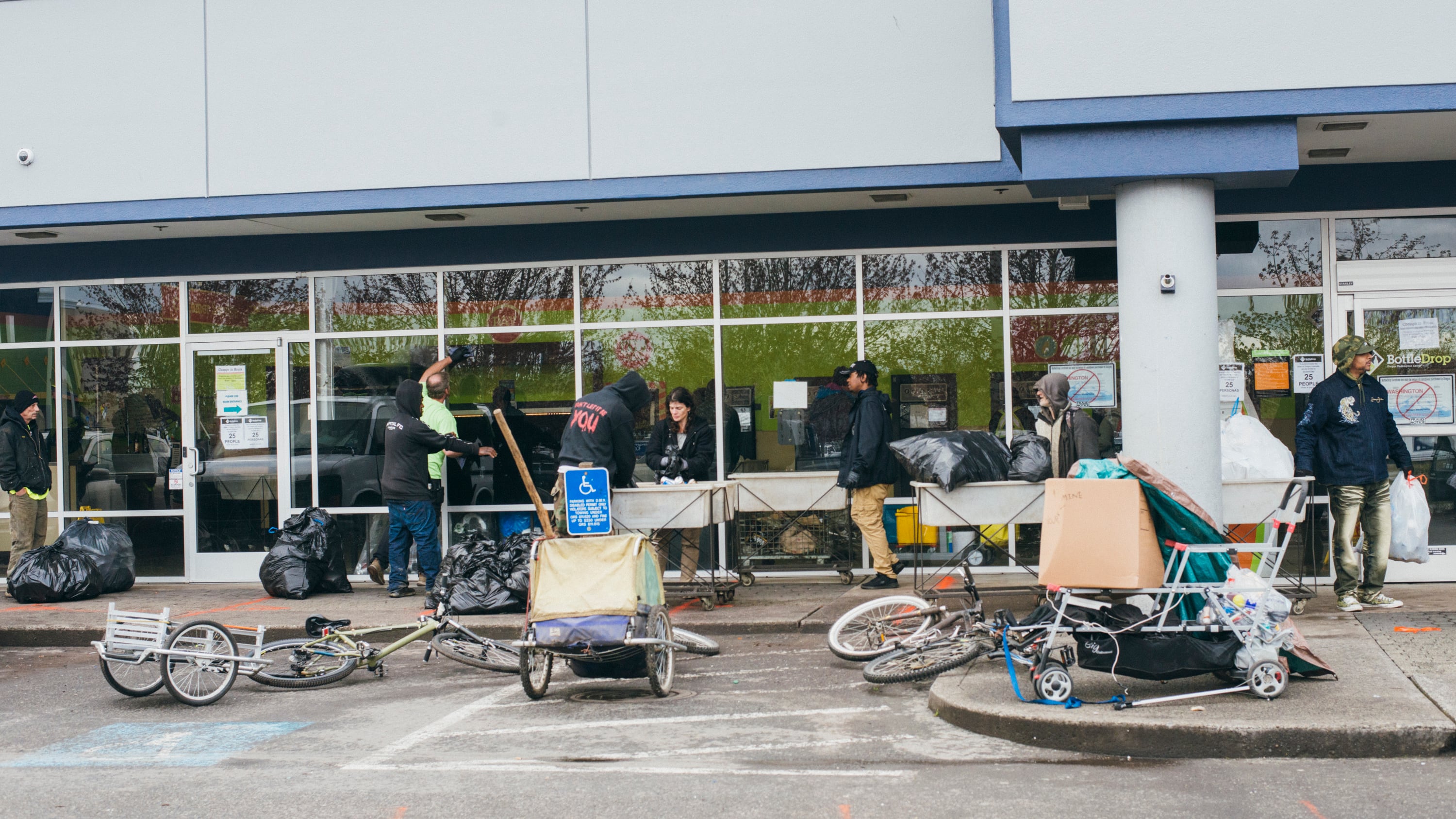State auditors today released a look at Oregon's Bottle Bill, which went a long way to establish the state's environmental credentials when lawmakers passed it in 1971.
The audit found the program is generally working well, although it noted a couple of areas for policymakers to consider: the status of unredeemed deposits, which occur when consumers don't return cans or bottles for the 10 cents they paid for them; and whether the system could operate more efficiently by adding additional containers, increasing the transparency of the "green bag" return system, or attacking fraud.
The audit noted that the amount of unredeemed containers creates a large pot of money here and in other bottle bill states.

Those unredeemed deposits left about $31 million in the hands of the Oregon Beverage Recycling Cooperative last year—money the industry group received from 10-cent bottle deposits but didn't have to pay out for returned containers.
In many of the states that have bottle bills, the state claims those unredeemed deposits, often to support its version of an environmental protection agency.
Oregon policymakers have long coveted those unredeemed deposits to fund various environmental programs, but the ORBC has argued the money goes to defray operating costs it has to bear.
(In many states, bottle bills are publicly funded; OBRC is a private nonprofit.)
Auditors suggested the state reexamine whether the current handling of unclaimed deposits could be tweaked to help support recycling or combat other environmental problems.
The new audit also put a number on cross-border fraud, which occurs when people bring cans and bottles from Washington, Idaho and other states that don't charge deposits.
"Auditors observed two Portland BottleDrop redemption centers near the Washington border," the report says. "During those hours, numerous people driving cars with Washington license plates redeemed containers, as well as cars with front or rear plates removed."
OBRC told auditors it believes the cost of fraud is about $10 million a year, which the auditors found plausible but could not recommend any way to reduce.
Since 2013, lawmakers have expanded the Bottle Bill to include plastic drink bottles and containers for energy drinks, teas and a variety of other packaged drinks that didn't exist in 1971. The largest remaining opportunity to increase recycling, auditors found, is the 100 million wine and liquor bottles that would be subject to redemption if the law were expanded. (Containers for milk and milk substitutes are also currently exempt from the law.)
The size and weight of wine and liquor bottles make them hard to handle. Retailers, already pressed for space and handling capacity, do not want them included in the law.
Here's representation of opportunities for expansion and efficiency.

Oregon's recycling rate sat at 86% last year, up from a low of 64% in 2016. Much of the change can be attributed to the 2017 decision to double the deposit from 5 to 10 cents. One of the biggest challenges policymakers face as they seek to further increase the recycling rate is that inflation has far outstripped the value of the deposit.

The audit also found that although customers have raised concerns about the transparency and accuracy of the OBRC's green bag program, which allows individuals to return empty containers in bulk, the system generally works well, as do the nonprofit's stand-alone redemption centers.
The Oregon Liquor Control Commission, which monitors the Bottle Bill, generally agreed with the audit's findings.
In a statement, the OBRC said it believes Oregon's current practice of delegating Bottle Bill operations to a private nonprofit is superior to that of other states. "OBRC operates without any public funds and has better outcomes than any other Bottle Bill in North America," OBRC said.
"No state that claims unredeemed deposits for use by the government has achieved the success of Oregon's program. In fact, most of those systems are struggling, with return rates below 70%. California just announced its redemption rate has fallen to almost 60%. As a result, other states are looking to copy Oregon's success and program, not the other way around."

